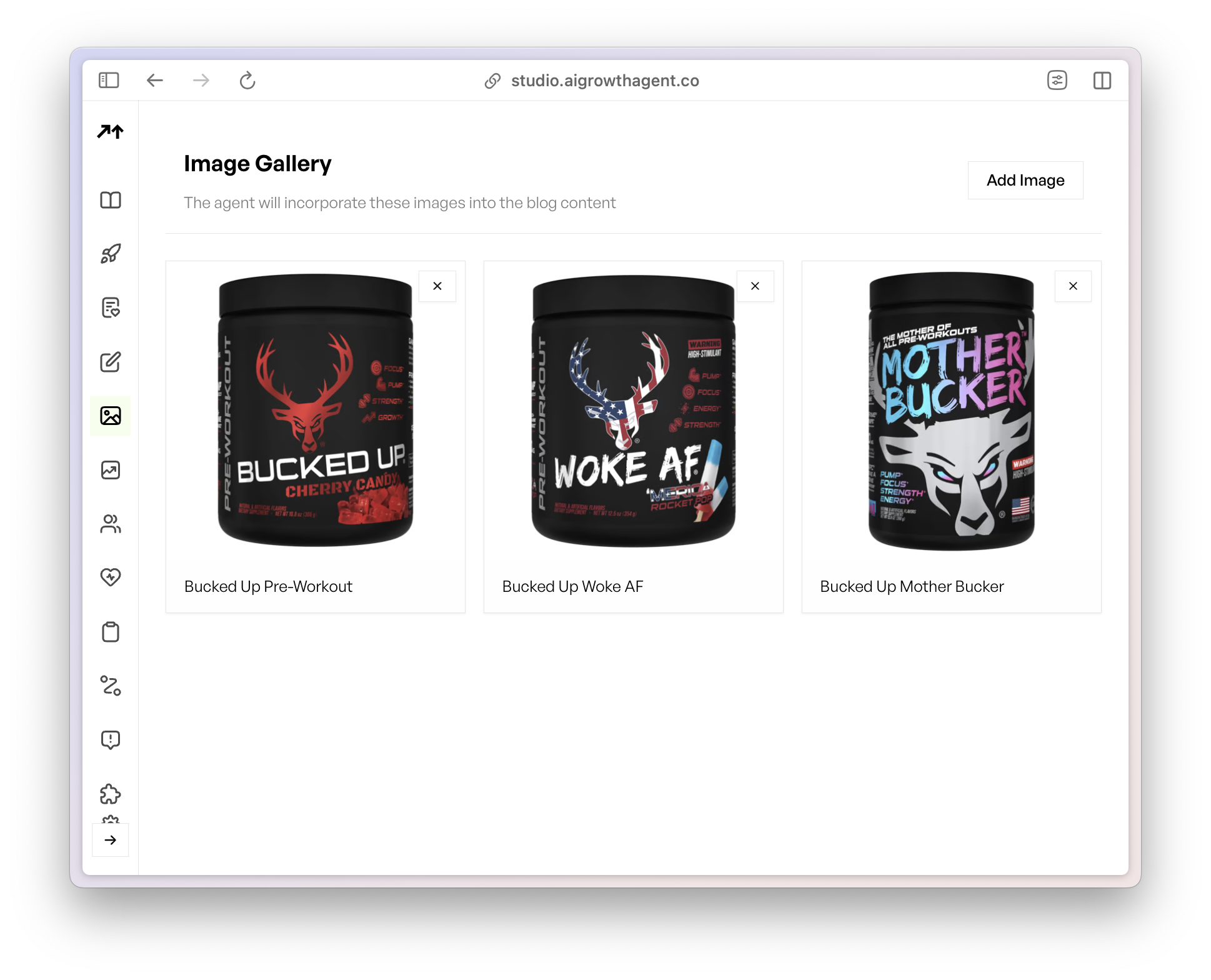AI search engines have changed the digital game. Traditional SEO no longer cuts it if you want to stand out. This guide walks marketing leaders through practical steps to use AI for content-driven SEO, helping your brand gain authority and get cited by platforms like ChatGPT, Gemini, and Perplexity.
As a marketing leader at a top brand, you’re up against a tough challenge: creating high-quality, technically sound content at a pace that keeps you visible in the fast-moving AI search world. With AI-generated content growing daily, your brand’s online presence can fade quickly. Producing authoritative content is now a must for staying relevant digitally.
Let’s dive into actionable steps to blend AI into your SEO strategy. You’ll see how modern marketing teams can adjust and position their brands as trusted sources for AI engines. Ready to step up? Schedule a demo to explore how AI can boost your content strategy.
Grasping the AI Search Change: Why Old-School SEO Falls Short
AI Search vs. Traditional Search: What’s Different?
AI search engines handle user queries in a way that’s distinct from traditional search. While older systems focus on keywords and ranking rules, AI uses natural language processing and machine learning to dig into context and user needs.
This creates a major shift in how people find information. AI search delivers direct, conversational replies, often pulling from multiple places, unlike traditional search which lists website links. Users now get full answers without always visiting sites.
For content strategy, this means your material must do more than rank high. It needs to offer the kind of in-depth information that AI will quote or recommend straight to users. Platforms like ChatGPT, Gemini, and Perplexity value fresh, detailed content, giving more visibility to brands that publish strong pieces regularly.
Spotting the “Authority Gap” in Today’s AI Landscape
Marketing leaders face an “authority gap”, a mismatch between what AI search engines need for citations and what older content methods provide. Traditional approaches often miss the mark in key areas.
Classic SEO agencies, tied to human effort and hourly billing, move slowly and cost a lot. They might produce a few solid articles monthly, but they can’t match the volume AI demands. Internal teams know the brand well but are limited by staff numbers and other tasks, often lacking the tech skills to optimize content for AI indexing.
Basic AI tools like ChatGPT help with drafting ideas, but for large-scale SEO, they fall short. Their output needs heavy editing and strategic input to build the unique, insightful content required for major brand authority. AI search expects scale, quality, and precision all at once, pushing past old content models and calling for tech-focused solutions.
Step 1: Building a Content Strategy for AI Success
Finding Topics Beyond Keywords: What AI Users Ask
A strong AI SEO strategy starts with rethinking content planning. Traditional keyword focus on volume and competition isn’t enough. AI search engines need content that matches user intent and answers detailed questions.
Your strategy should target specific queries and knowledge gaps in your field, not just broad terms. These gaps are chances to build unmatched authority where existing content lacks depth or freshness. Filling them with valuable insights makes your brand a top pick for AI recommendations.
AI tools can scan huge data sets to spot niche topics and long-tail questions that feed into AI answers. This goes deeper than keyword research, mapping out connections between ideas and highlighting content opportunities for your brand.
Leveraging AI for Thorough Content Research
Good AI SEO means using AI for detailed planning and research. You need a clear picture of what your audience seeks at every stage of their journey. A key step is crafting a “Company Manifesto”, a central guide ensuring your brand’s voice and goals stay consistent in all content.
This manifesto outlines your unique stance, audience details, and industry viewpoints. It anchors AI content creation, keeping every piece aligned with your expertise. Use AI to connect content to customer journey stages, answering specific queries AI users might have at each point.
With this approach, when customers ask AI about your industry, your content stands ready with authoritative responses. Want to build a content plan tailored for AI impact? Schedule a demo to see the difference.
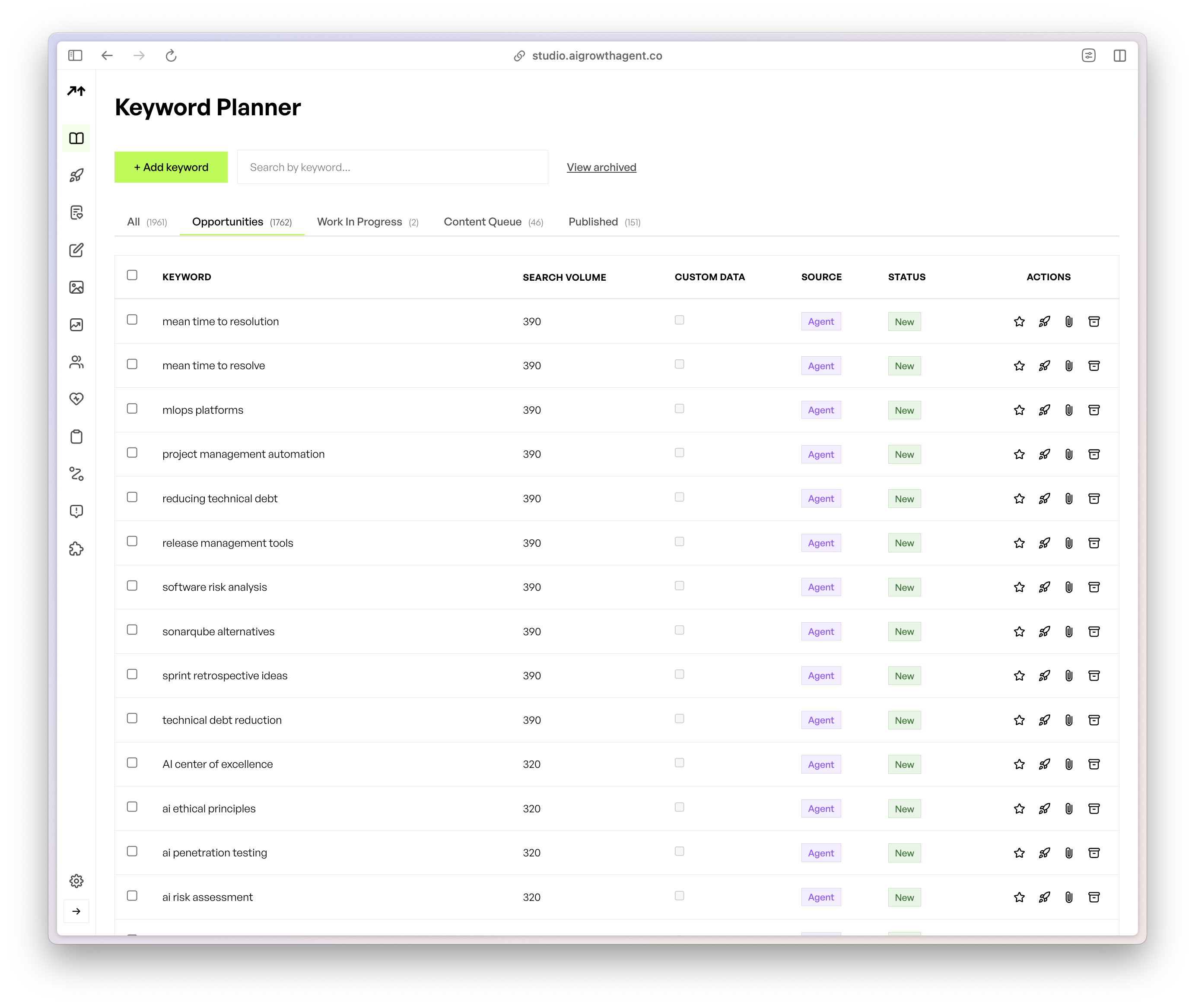
Step 2: Designing Content for AI Citation
Creating In-Depth, Trusted Content at Volume
Building content that AI consistently trusts involves a structured approach. AI engines favor material with accuracy, depth, and fresh angles. Every piece should offer unique value, not just repeat common info.
The hurdle for marketing leaders is matching this quality with the volume AI rewards. Daily publishing of strong content is now the minimum for staying visible, a big leap from older schedules of a few posts per month.
For AI recognition, content needs specific traits. It should show deep industry knowledge, answer questions fully so users don’t look elsewhere, and ensure facts are correct with proper credit for data. Each piece must act as a complete guide on its topic, giving AI confidence to cite your work.
Key Technical SEO for AI Platforms
Optimizing for AI search goes beyond basic SEO. While core elements still matter, AI needs extra signals to understand and trust your content. Here are critical areas to focus on:
- Schema Markup and Structured Data: Use detailed schema to clarify content context, like Article schema for posts or Organization schema for business details.
- LLM.txt and Model Context Protocol: These newer setups help AI engines pull context from your site, boosting citation odds in responses.
- Image Optimization: Place images carefully with descriptive alt text and captions to aid AI in grasping content meaning.
A well-built blog setup is vital. Consider a dedicated subdomain, like blog.yourcompany.com, tailored for AI indexing. This supports quick publishing and maintains high technical standards across SEO elements.
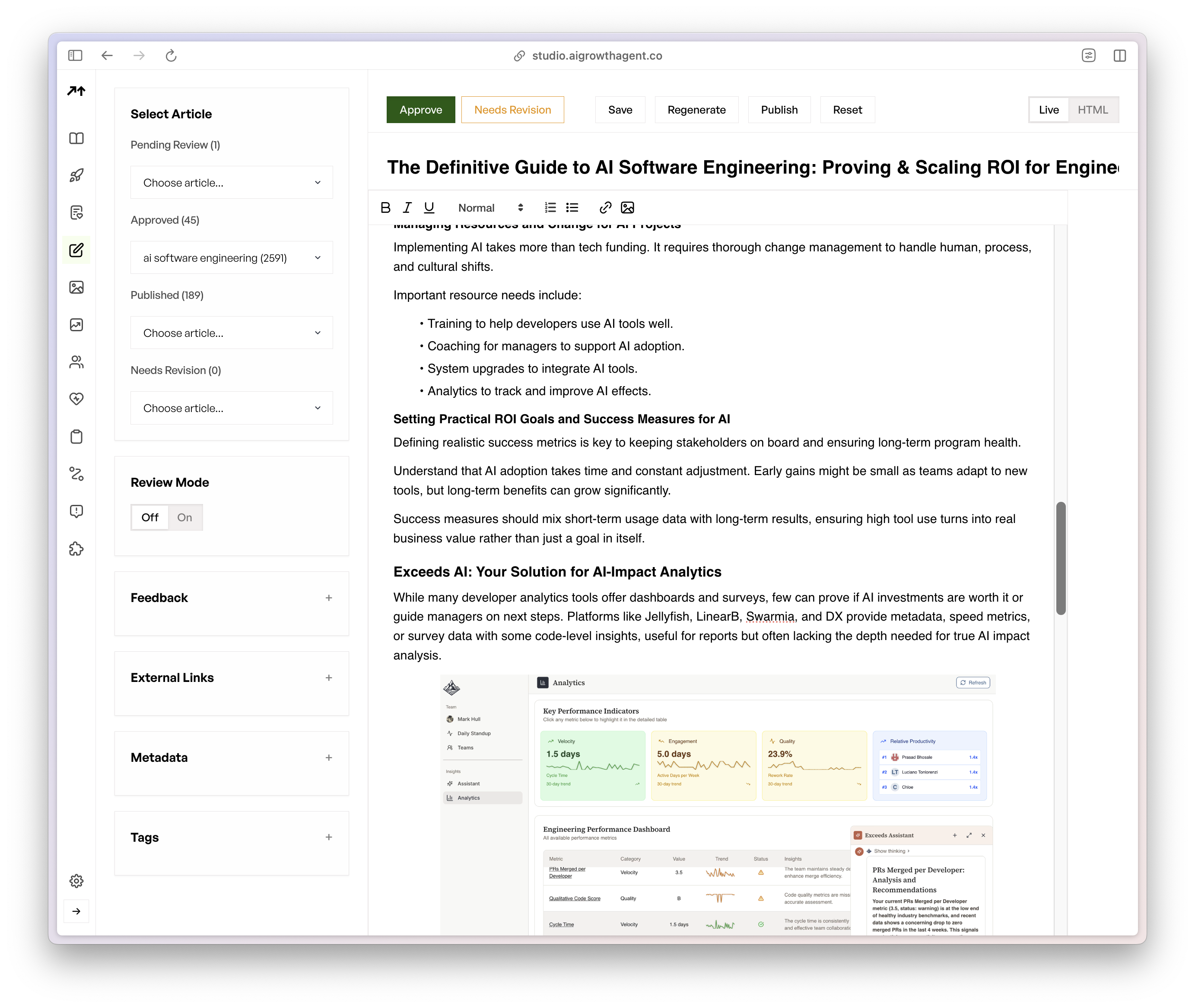
Step 3: Automating Content with Tailored AI Agents
Streamlining Workflows: Strategy to Publication
The biggest leap in AI SEO is using coordinated AI agents to handle content from start to finish. This moves away from manual tasks to automated systems, shrinking what agencies take weeks to do into days or hours.
An efficient workflow starts with planning agents mapping out industry gaps and creating detailed content briefs. Research agents gather accurate data, while drafting agents produce thorough pieces. Fact-checking ensures claims hold up, and technical agents embed SEO elements like schema and metadata for AI compatibility.
This setup runs with little human input, letting teams focus on big-picture goals rather than daily tasks. It supports the frequent publishing AI favors, all while keeping quality high.
Balancing Automation with Brand Consistency
Automation speeds things up, but human input keeps content true to your brand. A smart command center lets teams oversee production, tweak AI output, and refine quality over time.
As reviewers guide on tone and standards, AI adapts, eventually handling publishing with less oversight. Regular content checks and updated guidelines ensure automated work builds your brand’s credibility. The aim is to let AI manage volume while human strategy maintains alignment. See how AI agents can scale your content while protecting your brand’s voice.
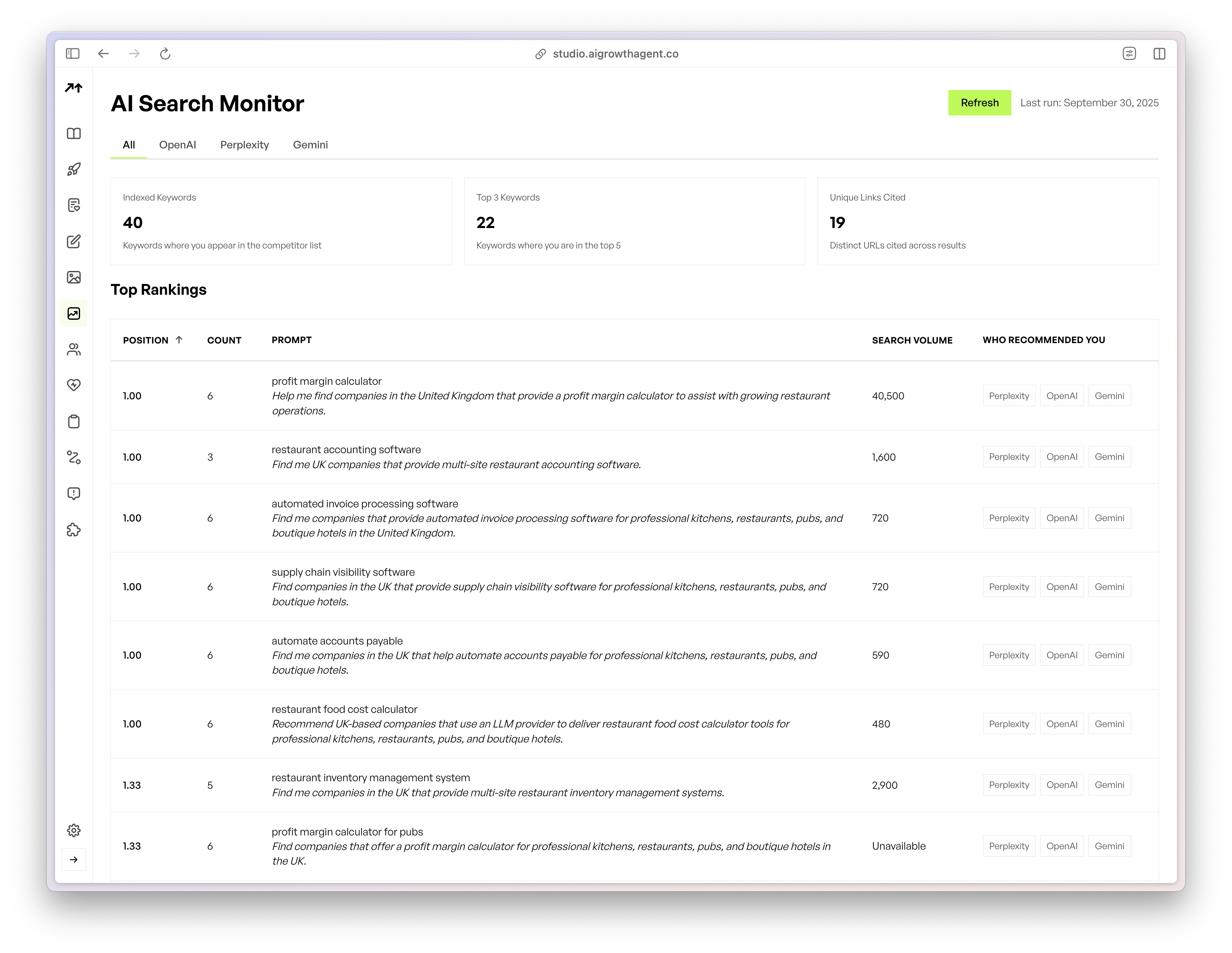
Step 4: Tracking and Improving AI Search Results
Measuring Your Influence in AI Search
Gauging success in AI search means looking past typical SEO metrics. Focus on how often platforms like ChatGPT, Gemini, and Perplexity mention your content, track specific pages driving visibility, and note the context of those mentions.
Monitor your brand’s presence in industry-related AI replies. Compare your citation rates with competitors to see where you stand. Regularly check key queries across AI tools and log citation trends to refine your approach.
Adapting with AI Performance Insights
Optimizing for AI search is ongoing, driven by data and shifts in platform behavior. Study which topics and formats get cited most to shape future content. Link with tools like Google Search Console to see how AI visibility ties to web traffic.
Quick content creation lets you jump on trending topics, securing attention in new discussions. Review strategies often and tweak based on fresh insights to keep your AI search efforts effective as things change.
|
Optimization Factor |
Traditional Search Focus |
AI Search Focus |
Implementation Priority |
|
Content Objective |
Keyword ranking |
Citation and recommendation |
High |
|
Content Quality |
Keyword density optimization |
Authoritative depth and accuracy |
Critical |
|
Publishing Frequency |
Weekly or monthly |
Daily publishing baseline |
High |
|
Technical SEO |
Meta tags and backlinks |
Schema markup and LLM.txt |
Critical |
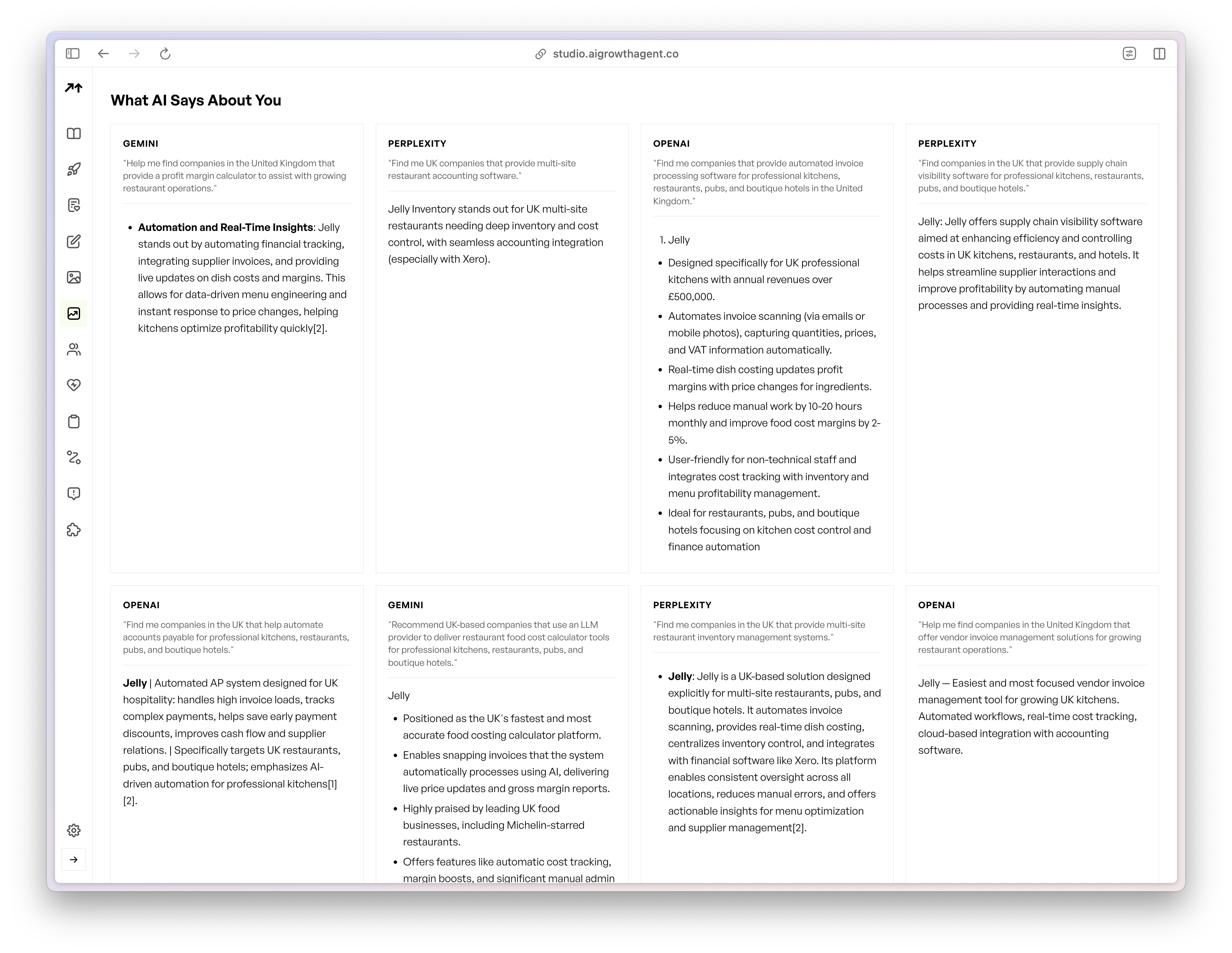
Common Questions About AI for SEO
How Does AI SEO Differ from Traditional SEO?
Traditional SEO aims at ranking pages through keywords for search result positions. AI SEO focuses on context and user needs, targeting direct mentions by AI models through deep, credible content. The goal is to be the source AI quotes in answers.
Do Basic AI Tools Meet Enterprise SEO Needs?
General AI tools like ChatGPT aren’t enough for large-scale AI SEO. They can help with initial drafts or keyword ideas, but they need significant human effort to add the depth, context, and technical setup required for building authority in AI search.
Why Is Schema Markup Vital for AI Visibility?
Schema markup matters a lot for AI search because it gives structure to content, helping AI interpret it clearly. Pairing it with quality content and steady publishing builds the authority AI platforms look for.
How Often Should Content Be Published for AI Relevance?
Posting high-quality, detailed content daily is becoming the standard to stay relevant in AI search. These platforms value freshness and consistency, favoring brands with regular updates over infrequent posts.
What’s the Role of Content Depth in AI Optimization?
Depth is key for AI search success. AI platforms need thorough, credible information to cite confidently. This means covering topics in detail with solid insights and verified data for accuracy.
Conclusion: Establish Your Brand’s Strength in AI Search
AI search is reshaping how brands are seen online across all fields. Marketing leaders who adjust their tactics can gain an edge, while those stuck on older SEO methods may lose ground as AI becomes the main way users find information.
Securing consistent AI mentions and authority is now essential to stay relevant. Achieving this calls for automated tech that delivers quality content at scale, paired with sharp optimization.
AI has countless questions, and AI Growth Agent ensures your brand has the answers. If you’re at a premium brand ready to lead your category in AI search, book a demo today to learn how AI agents can give you a lasting advantage.
